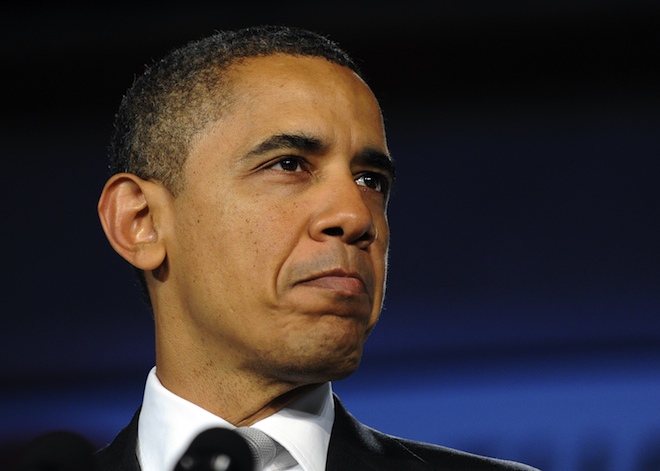Despite concerns from the law enforcement community that provisions of the National Defense Authorization Act that direct terrorism suspects into the military system could hamper national security, the White House said Wednesday that President Barack Obama would not veto the legislation.
Claiming credit for last minute changes to the legislation, White House spokesman Jay Carney said in statement that the administration had “succeeded in prompting the authors of the detainee provisions to make several important changes, including the removal of problematic provisions” after “intensive engagement” by administration officials and Obama himself.
Obama’s advisers said they would recommend a veto of the legislation as it stood last month. Congressional leaders made changes to the bill during a conference on Monday night that they said resolved the concerns the White House had, but FBI Director Robert Mueller said on Wednesday morning that the legislation remained problematic even after the revisions.
Carney said the White House is still concerned “about the uncertainty that this law will create for our counterterrorism professionals,” but said the changes “give the President additional discretion in determining how the law will be implemented, consistent with our values and the rule of law, which are at the heart of our country’s strength.”
Some observers expect Obama to issue a signing statement when he inks the bill into law, but civil liberties groups are disappointed the administration backed down.
“It’s clear that the White House shares the concerns that have been raised across the national security establishment by both Republicans and Democrats about the provisions of the legislation,” Heather Hurlburt, executive director of the National Security Network, told TPM.
“What’s really disappointing to me is that we’ve gotten to such a pass as a political culture that you can have civil libertarians, and plain old Republican libertarians and the FBI and the ACLU and the Pentagon and the CIA all asking for something and the political calculus can be such that they don’t get it,” she continued, adding that she thought even the people who supported this legislation don’t actually know what it means.
“When he took office, President Obama told the American people that he would restore the nation’s commitment to the rule of law and the protection of human rights,” Human Rights First President and CEO Elisa Massimino said in a statement. “Today’s announcement proves that he is unwilling to put his full power behind those presidential promises. The American people need a leader whose commitment to smart national security policies will not wane in the face of opposition from Capitol Hill. This legislation will be a loaded gun in the hands of the any future administration.”
The ACLU’s Laura Murphy said Obama “should more carefully consider the consequences of allowing this bill to become law.”
“If President Obama signs this bill, it will damage both his legacy and American’s reputation for upholding the rule of law,” Murphy said in a statement. “The last time Congress passed indefinite detention legislation was during the McCarthy era and President Truman had the courage to veto that bill. We hope that the president will consider the long view of history before codifying indefinite detention without charge or trial.”
The White House concluded that the language of the NDAA “does not challenge or constrain the President’s ability to collect intelligence, incapacitate dangerous terrorists, and protect the American people,” according to Carney’s statement. He added that if they determine the language “will negatively impact our counterterrorism professionals and undercut our commitment to the rule of law” while implementing the law, they “expect that the authors of these provisions will work quickly and tirelessly to correct these problems.”






